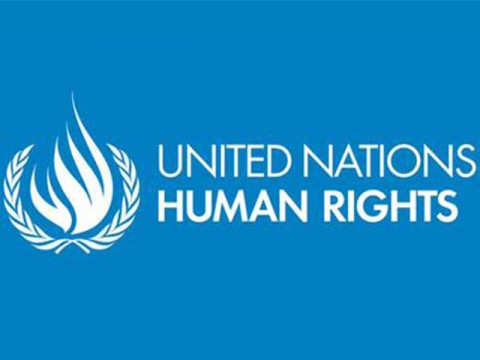Three U.N. Special Rapporteurs have added their voices to calls for information on the whereabouts of rights lawyer Jiang Tianyong. Jiang went missing last week after visiting the wife of fellow lawyer Xie Yang in Changsha. Xie was detained during last year’s Black Friday, or 709, crackdown and is now reportedly being beaten and ostracized in jail. From the Office of the High Commissioner for Human Rights:
Mr. Jiang Tianyong has represented clients in a number of high-profile cases in China, including clients that carried HIV, Falun Gong practitioners, Tibetan protesters and victims of the 2008 milk scandal, as well as well-known rights defenders.
“We cannot rule out the possibility that Mr. Jiang may have been disappeared by the State agents because of his human rights work,” the UN experts noted. “Over the past years, we have received information that Mr. Jiang has been arrested, detained, and beaten by the police and state security officers on multiple occasions as a result of his human rights work.”
“Combined with the reports of hundreds of human rights defenders in China that have been harassed, arrested, criminally charged, detained, or gone missing since the ‘709 crackdown’ in July 2015, we fear that Mr. Jiang’s disappearance may be directly linked to his advocacy and he may be at risk of torture,” they said.
[…] The UN Special Rapporteur on extreme poverty and human rights, Philip Alston, who met with Mr. Jiang in August during his visit to China, said he was deeply concerned that Mr. Jiang’s disappearance may have occurred, at least in part, in reprisal for his cooperation with the UN during his visit to China.
“The international standards are clear: States must refrain from and protect all persons from acts of reprisal,” Mr. Alston said, noting that that other individuals he met during his visit to China have also been harassed and subjected to what appears to be reprisals. [Source]
Alston commented in August that “China has much to be proud of in the field of poverty alleviation,” but that developments such as the 709 campaign “all seem to be heading in the direction of shrinking the space available to citizens to influence policy-making through public debate or to contest alleged violations of their rights.” Similarly, incoming U.N. Secretary General António Guterres called during a visit to Beijing late last month for “an effective combination in human rights, of civil and political rights and the economic and social rights in a balanced way.” Beijing has consistently emphasized the right to development, using its economic record to shield it from criticism on other fronts.
Referring to Jiang’s case at The Diplomat last Friday, activist Michael Caster wrote that “Beijing has been trying to normalize enforced disappearances for a decade,” with efforts including 2012 amendments to the Criminal Procedure Law, the 2015 National Security Law, and this year’s National Human Rights Action Plan:
Jiang is just the latest victim in Beijing’s terror campaign against the human rights community, which has seen the disappearance of countless individuals into a shadowy network of secret detention. Over the last decade, China has worked to normalize enforced disappearances behind a veneer of the rule of law.
[…] Although Article 37 [of the Criminal Procedure Law] guarantees the right to promptly meet with a lawyer, it also states that in national security cases this right may be revoked at the discretion of the police — a transparent exception considering RSDL is specifically designed for national security cases, among others. This is particularly troubling due to the conflation of national security crimes with human rights defense, apparent in the use of national security charges within the “709 Crackdown” on human rights lawyers beginning in July 2015. This trend is certain to continue unless the National Security Law is amended or repealed.
[…] China must clarify its definition and use of national security crimes. The extreme vagueness in the law allows for the State to claim anything it wants. This is doubly concerning when such allegations are part of manipulated legislation that attempts to legalize human rights violations on national security grounds. Again, international law is clear that there are no exceptions when it comes to enforced disappearances. [Source]
Also last Friday, an editorial in The Washington Post highlighted Jiang’s apparent detention and those of citizen journalists Liu Feiyue and Huang Qi. Both Liu and Huang appear to face the increasingly common suspicion of collusion with “hostile foreign forces.” The Post urged President-elect Donald Trump to speak up for them:
China’s crackdown on lawyers and human rights defenders is not a single event but a rolling onslaught. Last month, three prominent rights activists were detained by police in separate provinces. What makes these detentions so pernicious is that China’s security apparatus has targeted the backbone of the rights movement: lawyers and defenders who represent the accused. The latest detentions are part of President Xi Jinping’s broader campaign to snuff out opposition to the ruling party-state wherever it can be found.
[…] Every effort must be made to speak up for those who are hustled away in the middle of the night. President-elect Donald Trump has shown little interest in human rights, but after he takes office he should not remain silent about these cases, because silence only encourages more repression. [Source]
The editorial appeared before Trump’s hugely controversial phone call with Taiwanese President Tsai Ing-wen the same day, which may or may not offer a preview of his willingness to confront Beijing on other sensitive issues.








